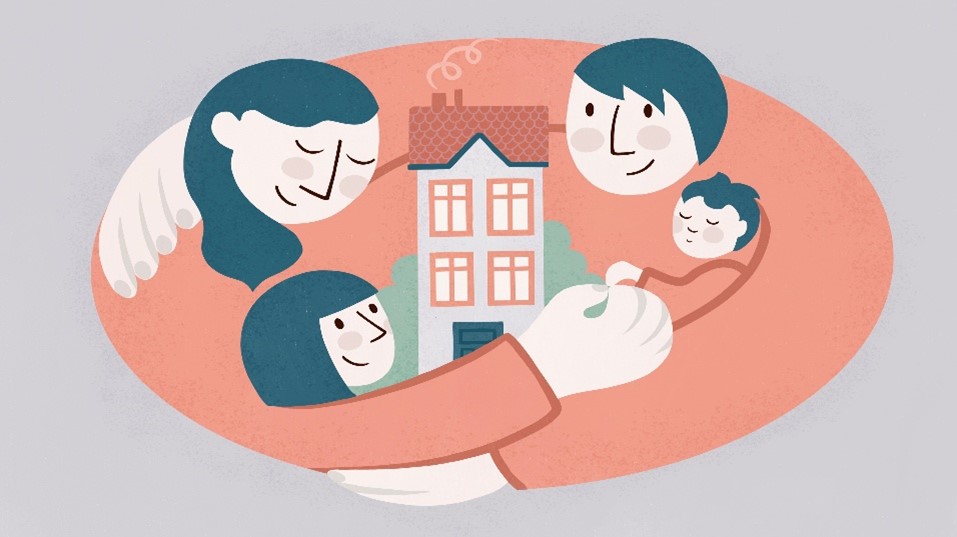FAMILY PRACTICE
THERAPEUTIC JUSTICE: THE ROAD TOWARD A RESTORATIVE FAMILY JUSTICE SYSTEM IN SINGAPORE
Therapeutic justice seeks to provide a new pathway for families to move on from their acrimonious past and start building a brighter new future.

What is Therapeutic Justice?
A fresh approach and the right mindset to family justice.
Therapeutic Justice (“TJ”) is the new approach to resolving family disputes in Singapore. Non-adversarial in nature, TJ aims to tackle family disputes in a more facilitative and holistic way by shifting the mindset of disputing parties away from casting blame.
TJ focuses on achieving workable and sustainable solutions for the benefit of the family through the implementation of essential legal structures and resources. Justice Debbie Ong, who was the Presiding Judge of the Family Justice Courts (“FJC”), explained that “[i]n family proceedings, the court looks ahead to support the family in recasting their future; it exhorts parties not to look back at the past to lay blame or relive their hurt or pain, but to let go and focus on building a positive future despite the breakdown”[1].
“In this system, the court will be a place for problem-solving and resolution, rather than a battlefield.” – Justice Debbie Ong
Implementing TJ to Support Families in Crisis
The integration of TJ into Singapore’s family justice system is marked by the birth of the Therapeutic Justice Model (the “TJ Model”) of the FJC. This development has been described by Chief Justice Sundaresh Menon as the most significant and consequential reform of the family justice system[2].
TJ works to help families move away from their acrimonious past and towards a brighter future together, with the introduction of a list of therapeutic justice objectives and a multitude of therapeutic services, whilst maintaining the familiar even-handed processes and procedures of the law and judiciary.
Parties can expect the court to adopt a judge-led, multi-disciplinary approach to resolving disputes, that targets the root cause of conflict within a family.
Divorce filed at the FJC will be allocated different tracks according to their individual needs and overall progress, which are as follows[3]:
- Full Simplified Track. This track is for parties who have amicably resolved all their issues, including ancillary issues. Parties may obtain final orders without having to attend court.
- Partial Simplified / Non-Simplified Track. This track is for all other cases that do not qualify for the Full Simplified Track.
For cases allocated to the Partial Simplified / Non-Simplified Track, parties will first undergo the triage stage, where they are required to fill out the Joint Triage Checklist before being directed to attend a TJ Cooperative Conference (TJCC) overseen by a mediation judge.
Following the TJCC, the case may be further placed on either the Standard Track or the Teams Track depending on the outcome of the Triage stage. Cases on the Standard Track are managed by Assistant Registrars while cases on the Teams Track are managed by a multi-disciplinary team usually consisting of a mediation judge, a hearing judge and a Court Family Specialist under a “One Family, One Team” approach[4].
“The adoption of TJ (Therapeutic Justice) is perhaps the most significant and consequential change in our family justice system, and we have, over a number of years, undertaken much work to integrate and operationalise its implementation.”
-Chief Justice Menon, at the Asian Family Conference
One Family, One Team
The multi-disciplinary team assigned to cases on the Teams Track will follow the parties through the duration of the dispute, from beginning to end.
The team will identify and adopt an approach that is customised to manage the specific concerns of the parties. These approaches are set to incorporate a more flexible use of the alternative dispute resolution infrastructure such as referrals to mediation and counselling, early judicial intervention in pressing matters and therapeutic referrals or other related assistance schemes, which set them apart from the typical judicial proceedings.
Aside from promoting efficiency in dispute resolution, this new multi-disciplinary approach boasts potential time and cost savings for the parties.
Conclusion
The integration of TJ in the family justice system represents an evolving step towards a holistic and restorative approach to family disputes.
By prioritising early intervention and empowering peaceful resolution, TJ seeks to provide a new pathway for families to move on with their lives instead of being caught up in protracted and expensive legal battles. The TJ Model ensures that divorce is not just the dark end of a marriage but the beginning of a brighter future for all parties involved.
For PDF version of this article, please click here.
References
[1] “Hope for less contentious divorce under Family Justice Courts approach of therapeutic justice” The Straits Times, Nov 28 2023, https://www.straitstimes.com/singapore/hope-for-less-contentious-divorce-under-family-justice-courts-approach-of-therapeutic-justice
[2] Sundaresh Menon CJ, “Transformation of the Family Justice System in Singapore”, special address at the 4th Asian Family Conference (7 November 2024)
[3] Family Justice Courts Therapeutic Justice Model (TJ Model) https://www.judiciary.gov.sg/docs/default-source/familydocs/guidebook_therapeutic_justice_english.pdf?sfvrsn=2a3d66c9_4
[4] Family Justice Courts Therapeutic Justice Model (TJ Model) https://www.judiciary.gov.sg/docs/default-source/family-docs/fjc_tj_full.pdf?sfvrsn=6d5426b0_2
At Infinity Legal LLC, we assist clients on all issues relating to family law and divorce.
© Infinity Legal LLC 2025
The content of this article is for general information purposes only, and does not constitute legal advice and should not be relied on as such. Specific advice should be sought about your specific circumstances. Infinity Legal LLC does not accept any responsibility for any loss which may arise from reliance on information or materials published in this article. Copyright in this publication is owned by Infinity Legal LLC.
This publication may not be reproduced or transmitted in any or by any means, in whole or in part, without prior written approval.
Infinity Legal LLC thanks and acknowledges Trainee Nicole Tan and Interns Laura Tan and Olivia Low for their contribution to this article.
[Last Updated: 25 February 2025, 4:40pm]
